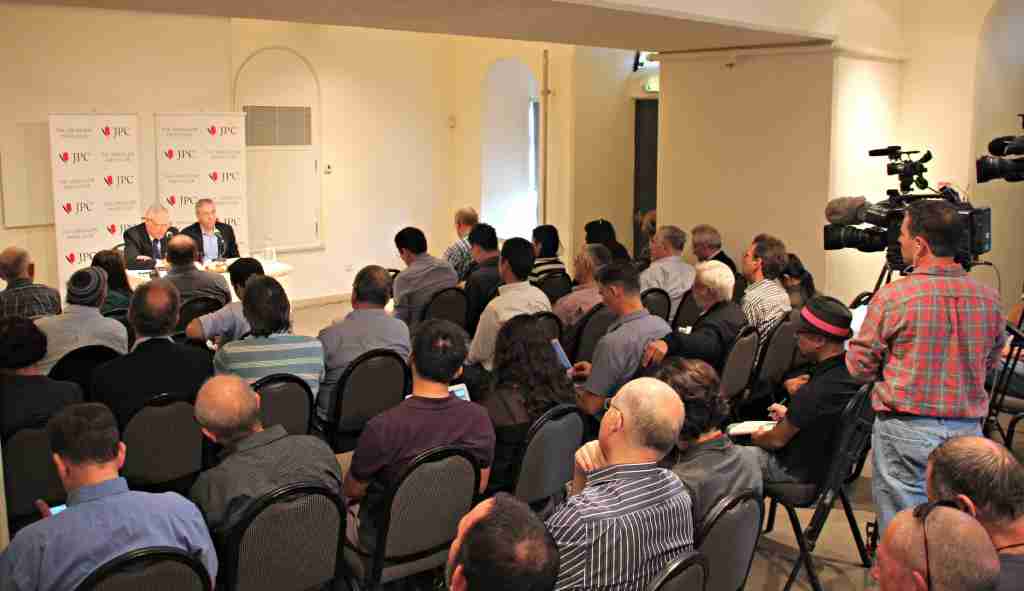On Monday November 4th, Major General (ret.) Amos Yadlin spoke to Press Club members in a briefing on recent developments in the Middle East.

The Times of Israel covered the briefing:
Speaking to journalists at the Jerusalem Press Club, Maj. Gen. (ret.) Amos Yadlin, a former military intelligence chief who currently heads the Institute for National Security Studies at Tel Aviv University, said the gap between Israel and the US revolved around the timing of a possible strike, not the imperative to launch one if all else failed.
Amos Yadlin has been the Director of Tel Aviv University’s Institute for National Security Studies (INSS) since November 2011. INSS is the leading strategic Think Tank in Israel. Maj. Gen. (ret.) Yadlin served for over 40 years in the Israel Defense Forces, served as a deputy commander of the Israel Air Force, and has commanded two fighter squadrons and two airbases.
He continued the briefing describing himself as an “admirer of air power,” stating that if the US wished to pursue a military option it should be precise and short. The Times of Israel quoted him:
“You can stop an air campaign any minute and the Americans have done so in the past,” Yadlin said. “They did it in Kosovo in 1999, they did it in Libya. If the Americans go for a military option it should be surgical, it should be short, and it should send a message. It can be one night or three nights and then stop. The Iranians will understand the message.”
General Yadlin served for over 40 years in the Israel Defense Forces, nine of which as a member of the IDF General Staff. From 2006-2010, Maj. Gen. (ret.) Yadlin served as the IDF’s chief of Defense Intelligence. From 2004-2006, he served as the IDF attaché to the United States. In February 2002, he earned the rank of major general and was named commander of the IDF Military Colleges and the National Defense College.
Maj. Gen. (ret.) Yadlin, a former deputy commander of the Israel Air Force, has commanded two fighter squadrons and two airbases. He has also served as Head of IAF Planning Department (1990-1993). He accumulated about 5,000 flight hours and flew more than 250 combat missions behind enemy lines. He participated in the Yom Kippur War (1973), Operation Peace for Galilee (1982) and Operation Tamuz – the destruction of the Osirak nuclear reactor in Iraq (1981).

